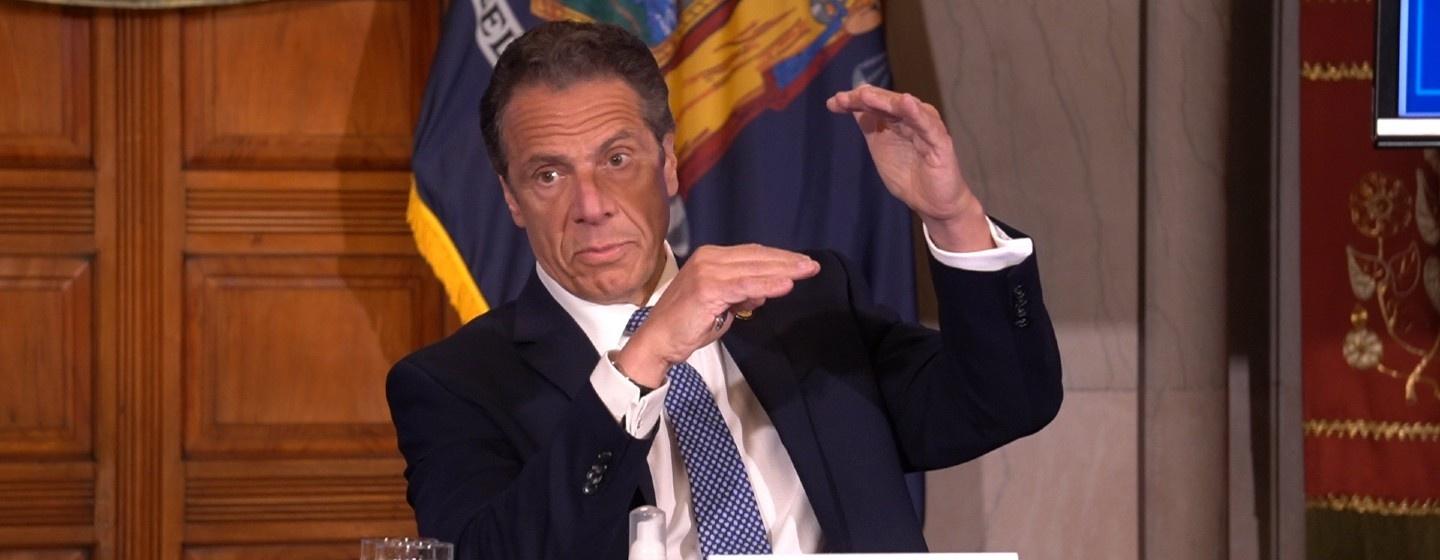Gov. Andrew Cuomo said Friday that the state will withhold funding from local governments and police agencies across the state that don’t adopt a plan to reinvent and modernize the strategies of their law enforcement officials by next April.
Cuomo said he’ll issue an executive order directing local governments to immediately begin that conversation, which must also be formed with input from each community.
“We’re not going to fund police agencies in this state that do not look at what’s been happening, come to terms with it, and reform themselves,” Cuomo said.
“This is systemic reform of police departments. This is sitting down and taking a look at exactly what they do, what they’ve been doing, and looking at it through a new lens of reform and reinvention.”
Under the executive order, local governments will be required to engage the public in an open process in developing new strategies for law enforcement, and then present a plan to the public for comment.
After the public has the chance to comment, the leader of that local government, like a mayor, town supervisor, etc, will present the plan to the locality’s legislative body — like a town or city council.
If the local government doesn’t approve a plan by the start of next April, they may not be eligible for funding from the state, Cuomo said.
The plans will have to address various issues around the conversation of police tactics, such as use of force by police officers, crowd management, community policing, implicit bias training, and other areas. They’ll also have to consider issues raised through community input.
Cuomo made the announcement before he signed a series of bills approved by the state Legislature this week intended to change how members of law enforcement do their jobs, and how they interact with the public, notably communities of color.
Among those new laws is a measure that will now allow the public to request the disciplinary records of members of law enforcement through the Freedom of Information Law. Individuals will still have to file that request with law enforcement agencies.
Another law will now enshrine, permanently, a part of the state Attorney General’s Office to act as a special prosecutor in instances where an individual dies during an interaction with police, or in the custody of law enforcement.
That’s actually been the case for five years. Cuomo issued an executive order appointing the Attorney General’s Office as a special prosecutor in those cases after the death of Eric Garner on Staten Island, but the new law will allow that activity to continue regardless of executive action.
Senate Majority Leader Andrea Stewart-Cousins, D-Westchester and Assembly Speaker Carl Heastie, D-Bronx, both joined Cuomo for the bill signing.
"We know that this is the beginning, but it is a move to bring justice to a system that has long been unjust,” Stewart-Cousins said.
Heastie said he was surprised about the bipartisan support some of the measures received. Some of the bills passed nearly unanimously in both chambers of the Legislature.
"I actually thought that the bill was going to be Democrat versus Republican. We have many, many Republicans voting for these bills because the entire world has said enough, is enough, is enough, is enough,” Heastie said.
Other bills approved by lawmakers this week will ban, and criminalize, the use of a chokehold by members of law enforcement in certain situations, penalize unwarranted 911 calls on people of a protected class, and codify an individual’s right to record the police.
Police unions have been critical of the bills, saying the legislation unfairly shifts power away from the police. Pat Lynch, president of the Police Benevolent Association of New York City, said the new laws will hinder the work of law enforcement.
"Police officers spend our days addressing issues caused by these failures. Now, we won’t even be able to do that. We will be permanently frozen, stripped of all resources and unable to do the job," Lynch said. "We don’t want to see our communities suffer, but this is what Governor Cuomo and our elected leaders have chosen."
A full list of the bills passed this week can be found on the State Senate’s website:



